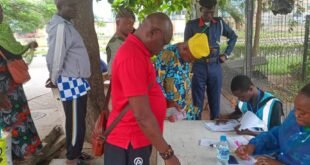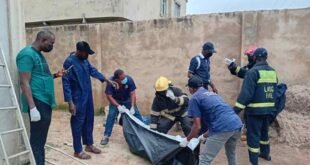In an era of rapid digital transformation, financial crime has become increasingly complex and pervasive. While large financial institutions often distribute sophisticated systems to safeguard activities, in particular microbuspendins, in developing economies remain vulnerable, under resources and largely unprotected.
My research focuses on filling this evident protection gap using artificial intelligence (AI). As a doctoral researcher at De Montfort University, Leicester, I am studying how AI -based solutions such as automatic learning, anomalies detection and behavioral analysis can be localized and reduced to serve microbusiness in the chain of the financial value of Nigeria.
The microbusiness dilemma: a growing threat, limited defenses
Micro and informal companies represent over 80% of companies in Nigeria. They are the heartbeat of the local economy and essential drivers of employment and innovation. However, their growing adoption of digital platforms exposes them to sophisticated threats such as:
Social engineering attacks and phishing
Theft of identity and imitation
Confirmation of fake payments and fraud of the mobile wallet
Insider abuse in small loan operations
However, these companies often lack tools of fraud analysis, conformity or technical know-how infrastructures. The result is devastating, not only financially, but in lost trust, in reputational damage and systemic exclusion.
To as a tool for financial inclusion and protection
In my professional role as fraud analyst at Barclays UK, I commit myself daily with corporate level fraud detection systems such as Falcon, Celonis and cybercrime portals. These tools have significantly improved the visibility of fraud and response times in high risk environments.
However, my doctoral search asks a critical question:
How can similar artificial intelligence techniques be adapted for low resource and high impact environments such as the informal economy of Nigeria?
The initial results suggest that even light open source artificial intelligence models, when trained on localized data, can provide real -time recognition, marks of fraud and user verification with minimum infrastructure. My research aims at:
Develop a framework to tailor -made for enabled microbusins for mobile devices
Evaluate behavioral biometry as a layer of identity guarantee
Explore federated learning models to guarantee data privacy
Propose a roadmap for risk solutions of convenient fraud on a large scale
From research to the impact of the real world
This work is more than academic. He is anchored in practice, in the community and in politics. I aim to create a bridge between basic economic actors and border technologies. By authorizing local entrepreneurs with intelligent fraud protection, we can improve digital trust, reduce the friction of transactions and unlock a wider financial inclusion.
Selected publications and technical work
I wrote and co -author of articles and white papers that explore the intersections between AI, the risk of fraud and digital conformity, including:
“Detection of fraud based on artificial intelligence in digital banking activities: improvement of safety through automatic learning”
“Improve Kyc and AML conformity using the blockchain”
“IT security and data protection in the supply chain: the role of artificial intelligence in the protection of sensitive data”
“Improve financial IT security in Cloud Engineering: a systematic revision”
These publications reflect my commitment in research with practical relevance, fill the regulatory needs, market reality and cutting -edge innovation.
Defense, recognition and involvement of the sector
They are a certified member of the main professional bodies including ACfe, Isca, (Isc) ² and CPN. Through tutoring, language commitments and collaboration with women’s initiatives in technology, I continue to support greater representation in IT security and Fintech.
In a sector historically underwater by African women, I aim to be a model and a resource for aspiring professionals on both continents.
Next steps: a call for collaboration
My research in De Montfort is a springing trampoline towards wider implementations, from partnerships with Nigerian and Fintech regulators, to global research collaborations. Invitation:
Academic institutions, to co-investigate models of localized
Political actors, to model the regulatory paintings for the resilience of fraud
Fintech companies and startups, for prototype of solutions with application of the real world
To explore research collaborations, language commitments or political consultations, I can be achieved to:
📧 [email protected]
📧 [email protected]
■ Adepeju Deborah Bello is a fraud analyst | Researcher | Digital Trust lawyer, derby, United Kingdom – 2025
Stay forward with the latest updates!
Join the Conclaveng on WhatsApp and Telegram for notices of news in real time, rupture stories and exclusive content delivered directly to the phone. Don’t miss a title: Sign up now!
Join our WhatsApp channel
Join our Telegram channel
 JamzNG Latest News, Gist, Entertainment in Nigeria
JamzNG Latest News, Gist, Entertainment in Nigeria









